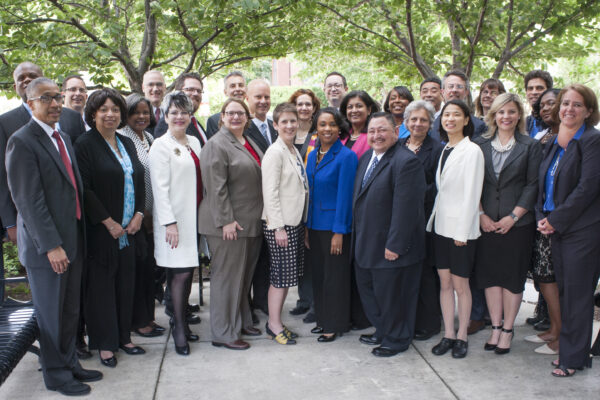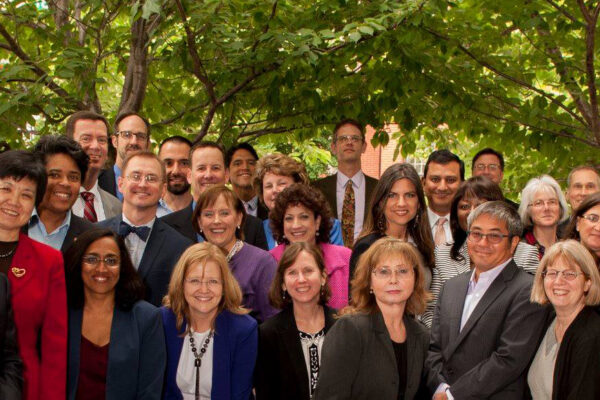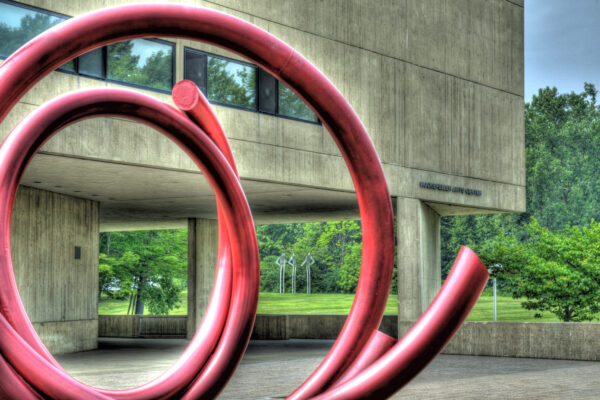ACE Fellow Audrey Bilger reflects on her year spent as a higher education leader-in-training.
Two decades ago when I was learning to play drums, I had an extraordinarily patient teacher who espoused in his playing what he called a Zen approach, a concept he borrowed from Timothy Gallwey’s 1974 book, The Inner Game of Tennis. His method of instruction involved a form of osmosis.
At one point, when I was struggling to master the drum roll, unable to translate theory into practice and deliver a smooth, correctly timed percussive rumble, he told me that the key to executing the technique—and to drumming and performance in general—was to avoid over-thinking, to let your muscles find the right path. To illustrate, he sat next to me with a practice pad and began a perfect roll, encouraging me to jump in on my snare when the spirit moved me.
At first, I felt self-conscious. Negative thoughts crowded my mind. He persisted with his drum roll, occasionally urging me to stop thinking and start playing. A few more fumbles ensued.
Then, suddenly, as if by some enchantment, my drum roll took shape. He nodded approvingly, and for a minute or so, we both kept our respective rolls going.
“Your hands and fingers know what to do,” he said as we played. “Don’t let your thoughts distract you from doing what you know how to do.”
I never forgot this lesson and its underlying message: At the outset of learning a skill, it is important to study and analyze, but when the time comes to perform, you need to move. Theory informs practice. When you know what you’re doing, you can act by instinct.
Over the course of my year as an ACE Fellow, I came to understand the applicability of that lesson to leadership training.
For a full year, I read, analyzed, participated in workshops, and reflected on theories about leading. All the while, because I spent much of my time in the company of outstanding leaders, I was able to witness and engage in the art of leadership.
During my placement at the University of California, Riverside (UCR), I sat in on cabinet meetings when serious issues—in some cases, near-crises—were on the table. Deliberations frequently took place with lightning speed and precision. To paraphrase something Chancellor Kim Wilcox shared with me, effective leaders bring experience and judgment to bear on complex situations.
What I witnessed in my time at UCR was a highly skilled senior leadership team, motivated by a shared commitment to public research and education, as well as to the values of diversity, inclusivity and access. When making tough decisions, they returned repeatedly to key touchstones: benefitting students, enhancing the research enterprise, and serving the greater social good. They also drew on examples from their many years of work in higher education. From my connection to them, I grew in knowledge and honed my instincts.
In addition to my placement at Riverside, as part of my fellowship experience, I also visited 20 colleges and universities in the United States and the UK. I sought institutions known for their diverse student populations and student success track records and requested meetings with members of senior leadership teams.
Thanks to the reputation of the ACE Fellows program, everywhere I visited, whether on my own or with classmates, people were incredibly generous. I met with chancellors, presidents, deans and other executive leaders for candid conversations about their work and the challenges and opportunities for leaders in higher education today.
A conversation at Kingston University, in southwest London, exemplifies the wisdom I encountered in my travels. Over lunch with a group of Fellows, Vice Chancellor Julius Weinberg echoed Chancellor Wilcox’s point, stating that university leaders “get paid to make decisions under conditions of uncertainty.” He added another dimension to this insight by noting that “leaders need to avoid rushing around doing things all the time.” It is essential, he said, to spend time “mulling things over” and “chatting with people” in order to “create the opportunities for serendipities to occur.”
Reflecting back on my ACE year, I am filled with a deep and abiding sense of gratitude. I am honored to have met numerous campus leaders who shared their stories and offered advice. At Riverside, on campus visits, and in my fellowship cohort, I made friends who will continue to serve as role models, confidants, and allies as I move forward on my leadership journey. Above all, I am grateful to be a member of the ACE Fellows program “golden” class of 2014-15.
To lead effectively, as I have learned from the talented people I encountered this year, you need to commit, to be present, open to possibilities, and fully in the mix. It’s not that different from playing in a band. If you get the right people who can find the right notes and rhythm, you can collaborate to produce effects that are bigger than the sum of the parts.
Like that transformational lesson from my drum teacher, this year will live on and guide me on my way. All that I have learned will stand me in good stead each time I am called upon to act as a leader.
The ACE Fellows program has left me feeling optimistic about the future of higher education. And expectant.
Drum roll, please.
 Audrey Bilger is the faculty director of the Center for Writing and Public Discourse and professor of literature at Claremont McKenna College. Her most recent book, Here Come the Brides! Reflections on Lesbian Love and Marriage, coedited with Michele Kort, was a 2013 Lambda Literary Award finalist. She is the author of Laughing Feminism: Subversive Comedy in Frances Burney, Maria Edgeworth, and Jane Austen. She is a member of the Ms. Committee of Scholars and serves on the editorial boards of Pickering and Chatto’s Gender and Genre series and the Burney Journal. Her work has appeared in Ms magazine, the Ms blog, the Paris Review, the San Francisco Chronicle, the Los Angeles Times, and The Los Angeles Review of Books. Follow her on Twitter at @AudreyBilger. Photo by Greg Allen.
Audrey Bilger is the faculty director of the Center for Writing and Public Discourse and professor of literature at Claremont McKenna College. Her most recent book, Here Come the Brides! Reflections on Lesbian Love and Marriage, coedited with Michele Kort, was a 2013 Lambda Literary Award finalist. She is the author of Laughing Feminism: Subversive Comedy in Frances Burney, Maria Edgeworth, and Jane Austen. She is a member of the Ms. Committee of Scholars and serves on the editorial boards of Pickering and Chatto’s Gender and Genre series and the Burney Journal. Her work has appeared in Ms magazine, the Ms blog, the Paris Review, the San Francisco Chronicle, the Los Angeles Times, and The Los Angeles Review of Books. Follow her on Twitter at @AudreyBilger. Photo by Greg Allen.
If you have any questions or comments about this blog post, please contact us.


